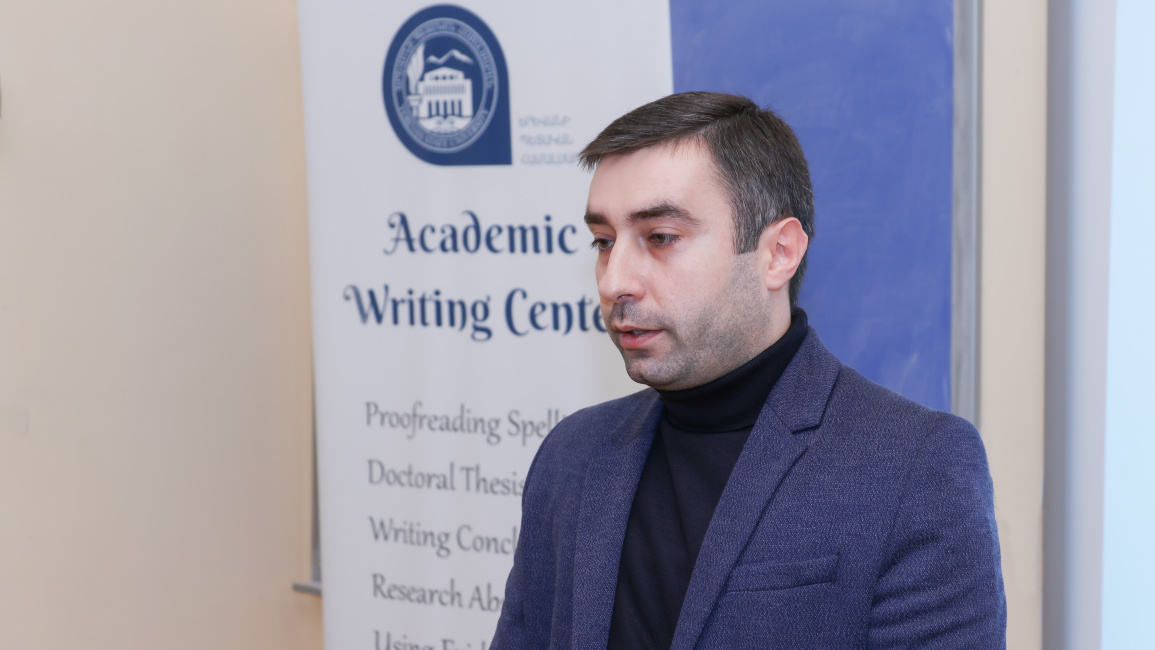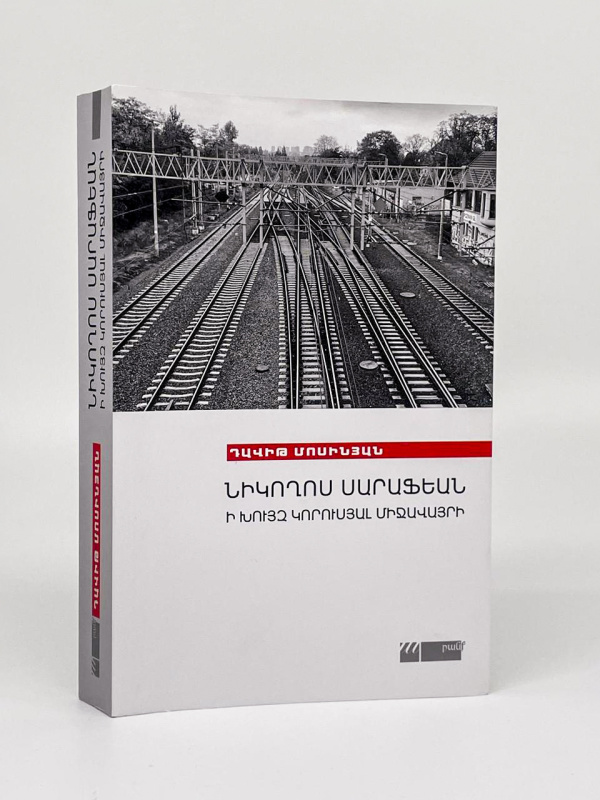July 09, 2024 | 12:00
Science
International cooperation
Events
"Nikoghos Sarafian: In Search of a Lost Environment": a journey into the life and creativity of a Diaspora Armenian thinker, interpreted by Davit Mosinyan
Davit Mosinyan, Candidate of Philosophical Sciences, Associate Professor in the Chair of History, Theory, and Logic of Philosophy, Head of the Laboratory of Philosophy and Theory of History at the YSU Faculty of Philosophy and Psychology, recently visited the National Institute for Oriental Languages and Civilizations (INALCO) in Paris at the invitation of colleagues from the Armenian Studies Department. During his visit, he presented his authored book titled "Nikoghos Sarafian: In Search of a Lost Environment" to students and other attendees interested in the topic, once again exploring the diasporic experiences of Armenian thinkers.

We talked to Davit Mosinyan about the motivations for writing the book, as well as the lecture on the subject.
- Mr. Mosinyan, were you there as part of a specific program at the National Institute for Oriental Languages and Civilizations (INALCO) in Paris?
- The Institute of Oriental Languages and Civilizations in Paris has a department of Armenian studies, which operates quite actively under the leadership of Anahit Tonapetyan. This department collaborates closely with the Armenian publishing house Actual Art, and in cooperation with Banq Publishing House, they published my book titled "Nikoghos Sarafian: In Search of a Lost Environment." The book explores the diasporic experience, which led to an invitation to present it at the institute.
- Why did you choose to write about Nikoghos Sarafian among Diaspora Armenian thinkers?
- I think Nikoghos Sarafian is one of the most significant thinkers in Armenian culture of the 20th century. Despite his potential to achieve global recognition, he, unfortunately, remained in obscurity. He motivates everyone to think about realities that did not exist before. Sarafian is a poet of the post-genocide Diaspora, and in a way, he was one of the people who ensured the existence of Diaspora. This alone warrants efforts to bring him out of obscurity.

- Could you elaborate on the topics you covered in the book?
- The book delves into the Diaspora experience, examining what it means to live in a foreign environment, both literally and philosophically. In other words, on the one hand, it is the problem of establishing and sustaining the Armenian Diaspora, and on the other hand, the problem of an individual forming a creative free environment.
The book presents Sarafian's path to solving the two mentioned problems. The book discusses the issue of aestheticization of the Genocide, the possibility of the Diaspora’s identity, the perspective of Armenian culture and Armenia’s relationship with the world, and the efforts to sustain identity through poetry and philosophy. In this regard, the work takes on a distinctly philosophical tone.
- Mr. Mosinyan, you delivered a lecture about your book at the Institute of Oriental Languages and Civilizations in Paris. Could you share your experience of this event?
- Nikoghos Sarafian is a French-Armenian poet, who settled in Paris in 1923 and lived there until his passing in 1972. Therefore, Paris, the writer’s familiar city, is the best environment to understand him. Hence, it was important to lecture on this subject in Paris for two reasons: first, it is the poet’s familiar environment, and secondly, one of the most important centers of Armenian studies operates at the Institute of Oriental Languages and Civilizations, providing an excellent platform for reflecting on Armenian thinkers.
- How was your book and lecture received by the audience?
- In the Diaspora, as well as in Paris, the number of people engaged in the creation and criticism of Armenian cultural values is relatively small. However, fortunately, there are still prominent Armenian thinkers in Paris such as Krikor Beledian, Zhirayr Malkhasian, and younger thinkers who participated in the meeting. In general, I am interested in their understanding of Armenian culture, and I think they are interested in Armenians’ viewpoint. Such interactions are crucial for fostering stronger Armenia-Diaspora relations.
- From your perspective, what was the significance of your visit?
- Now, more than ever, there is a need for the internationalization of culture and education, and events like this directly contribute to that goal. In October, we established the Laboratory of Philosophy and Theory of History at the university, with its primary mission being to make Armenian history and culture visible on the international stage. This visit can also be seen as a small step towards achieving that larger objective.
- How important is it to regularly reflect on prominent Armenian figures and promote their recognition among the public? What are your upcoming plans?
- Reflecting on prominent individuals is not merely an end in itself; it is crucial for fostering a healthy critical environment and culturally enriched life.
One of our primary goals and upcoming plans is to consistently address Armenian culture and history, thereby ensuring its presence on the global stage to varying degrees.

